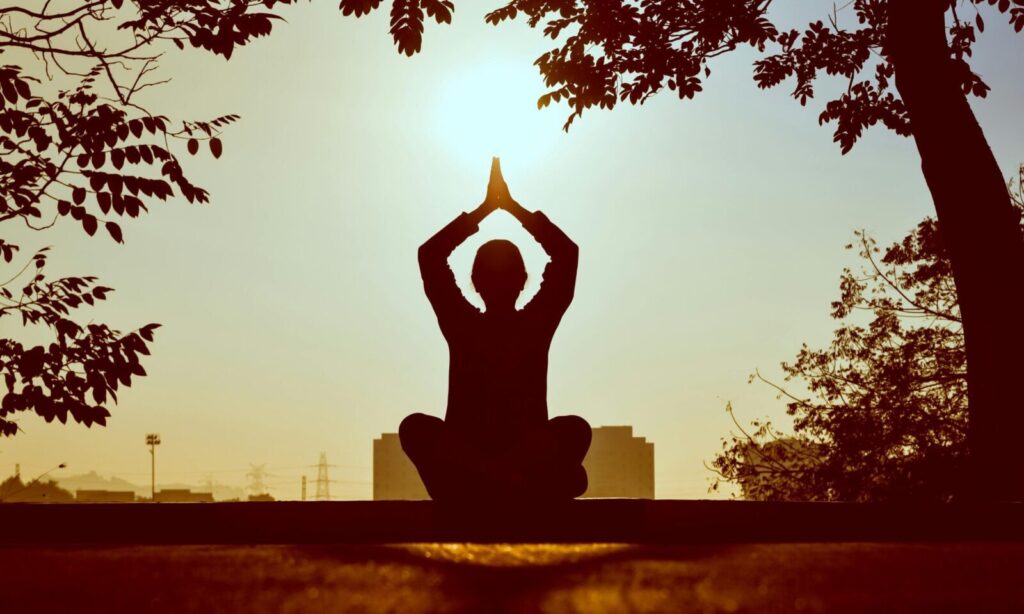As the year winds down, it’s easy to get swept up in the rush of finishing tasks, attending gatherings, and setting goals for the next chapter. But before stepping into a new year, it’s just as important to pause and reconnect with yourself. Reflection helps you process how far you’ve come, what you’ve learned, and what truly matters to you. Taking time to tune in mentally, emotionally, and even spiritually creates space for clarity and peace. It’s not about reinventing your life overnight but about realigning with your values and rediscovering the things that make you feel grounded and fulfilled. Whether it’s through quiet moments of journaling, revisiting old hobbies, or simply breathing deeply without distraction, these small acts of self-connection can make the transition into the new year more meaningful. Here are twelve gentle yet powerful ways to help you reconnect with yourself before the year comes to a close.
1. Reflect on the Past Year

Take time to look back on the moments that shaped your year, both the highs and the challenges. Reflection allows you to process your experiences, recognize your growth, and understand what truly mattered most. You can write down your achievements, lessons learned, and the things you want to let go of. This honest evaluation helps you see patterns in your choices and behaviors, giving you a clearer sense of direction. Instead of focusing on regrets, focus on gratitude for how much you’ve evolved. Reflection isn’t about dwelling on the past but using it as a guide for what’s next.
2. Spend Time in Nature

Nature has a way of bringing calm and clarity when life feels overwhelming. A quiet walk in the park, sitting by the beach, or simply watching the sunrise can help you reconnect with your inner peace. The stillness of nature encourages mindfulness, allowing you to be present without distractions. You begin to notice the beauty in small things like the sound of leaves or the feel of fresh air. Studies show that time outdoors reduces stress and enhances emotional well-being. Spending time in nature helps you slow down, breathe deeply, and remember that life doesn’t need to be rushed.
3. Journal Your Thoughts and Feelings

Writing down your thoughts helps you process emotions and gain insight into your inner world. Journaling offers a safe space to express yourself honestly without fear of judgment. You can write about your feelings, dreams, or things you want to accomplish. This habit helps you identify recurring thoughts or habits that may be holding you back. It’s not about perfection or grammar but self-expression. Journaling promotes mindfulness and self-awareness, helping you reconnect with who you truly are. When you revisit your entries, you’ll see how far you’ve come and what continues to inspire or challenge you.
4. Revisit an Old Hobby

Sometimes, the best way to reconnect with yourself is to return to something that once brought you joy. Whether it’s painting, gardening, dancing, or playing an instrument, engaging in an old hobby reignites creativity and excitement. These activities help you express yourself in ways that words often can’t. Reconnecting with old interests can remind you of your passions and strengths that may have been forgotten amid daily responsibilities. Doing something you love also releases stress and boosts happiness. It’s a simple yet meaningful reminder that self-discovery often comes from revisiting the things that once made you feel alive.
5. Practice Mindful Breathing

When life gets hectic, it’s easy to forget the power of a single deep breath. Mindful breathing helps you center yourself in the present moment and reduce mental noise. Sit in a quiet space, close your eyes, and take slow, intentional breaths. Feel the air entering your lungs and releasing your tension as you exhale. This simple practice calms the mind, lowers stress levels, and brings awareness back to your body. Even a few minutes a day can help improve focus and emotional balance. Through mindful breathing, you reconnect with your inner calm and restore a sense of peace.
6. Declutter Your Space

Your environment often reflects your state of mind. Decluttering your surroundings can help you feel lighter, clearer, and more in control. Start small by organizing your desk, cleaning your room, or donating items you no longer use. As you create order in your physical space, you’ll notice a similar sense of clarity within yourself. A tidy environment promotes relaxation and reduces mental clutter, making it easier to think and focus. Decluttering is more than a chore; it’s an act of self-care that symbolizes letting go of what no longer serves you and making room for new opportunities.
7. Set Intentions, Not Resolutions

Instead of rigid resolutions, set gentle intentions that align with your values and emotions. Intentions focus on how you want to feel and live, not just what you want to achieve. For example, instead of saying “I’ll work out every day,” you can say “I’ll honor my body through movement.” This shift encourages self-compassion and flexibility while keeping your goals meaningful. Writing your intentions helps you stay mindful of what truly matters throughout the year. It’s a more holistic approach to growth that promotes consistency and joy rather than pressure or guilt, allowing you to start the year balanced.
8. Connect with Loved Ones

Reconnecting with yourself often involves reconnecting with others. Spending quality time with people who uplift and support you helps strengthen emotional bonds and reminds you of your sense of belonging. Whether it’s a heartfelt conversation, sharing a meal, or simply being present together, meaningful connections nurture happiness. Express gratitude to the people who stood by you and let them know how much they matter. Human connection is essential for emotional well-being, and nurturing relationships before the year ends creates lasting positivity. Being surrounded by love helps you rediscover warmth, empathy, and the value of shared moments.
9. Disconnect from Technology

Taking a break from screens allows your mind to rest and reconnect with the world around you. Constant notifications and endless scrolling can drain mental energy and distract you from the present moment. Try spending a day or even a few hours unplugged from your phone, social media, and emails. Use that time to read, reflect, or simply enjoy silence. Without digital noise, you become more aware of your thoughts and surroundings. Disconnecting helps you reset your focus, improve sleep, and nurture mindfulness. It’s a refreshing reminder that peace and clarity often come when you disconnect to truly reconnect.
10. Move Your Body with Joy

Physical movement doesn’t have to mean intense workouts; it’s about finding joy in motion. Dancing, stretching, walking, or practicing yoga can help release stress and boost endorphins. Moving your body reminds you of your strength and vitality while helping you stay grounded in the present. Exercise also supports better mental health by improving mood and focus. Choose activities that make you feel alive rather than pressured. When you move with joy instead of obligation, you create a deeper connection between your body and mind. It’s a powerful way to express gratitude for your body and its abilities.
11. Practice Gratitude Daily

Gratitude helps shift your perspective from what’s missing to what’s already meaningful in your life. Each day, take a moment to acknowledge the things you’re thankful for, big or small. It could be good health, supportive friends, or even a quiet morning. Writing or saying them aloud helps cultivate positivity and contentment. Gratitude also strengthens emotional resilience, allowing you to handle challenges with a lighter heart. This daily reflection helps you focus on abundance rather than lack, fostering a stronger connection to yourself and your journey. Gratitude turns ordinary moments into reminders of life’s simple joys.
12. Give Yourself Permission to Rest

Rest isn’t laziness; it’s an essential part of healing and self-connection. Giving yourself permission to slow down allows your body and mind to recharge after months of constant activity. Whether it’s sleeping in, meditating, or simply doing nothing, rest helps restore balance. It’s during these quiet moments that clarity and creativity often return. Rest teaches you to listen to your body’s signals and honor your need for recovery. By embracing stillness without guilt, you prepare yourself for the new year with renewed energy and peace. Remember, self-care begins with the simple act of resting without apology.
Comments